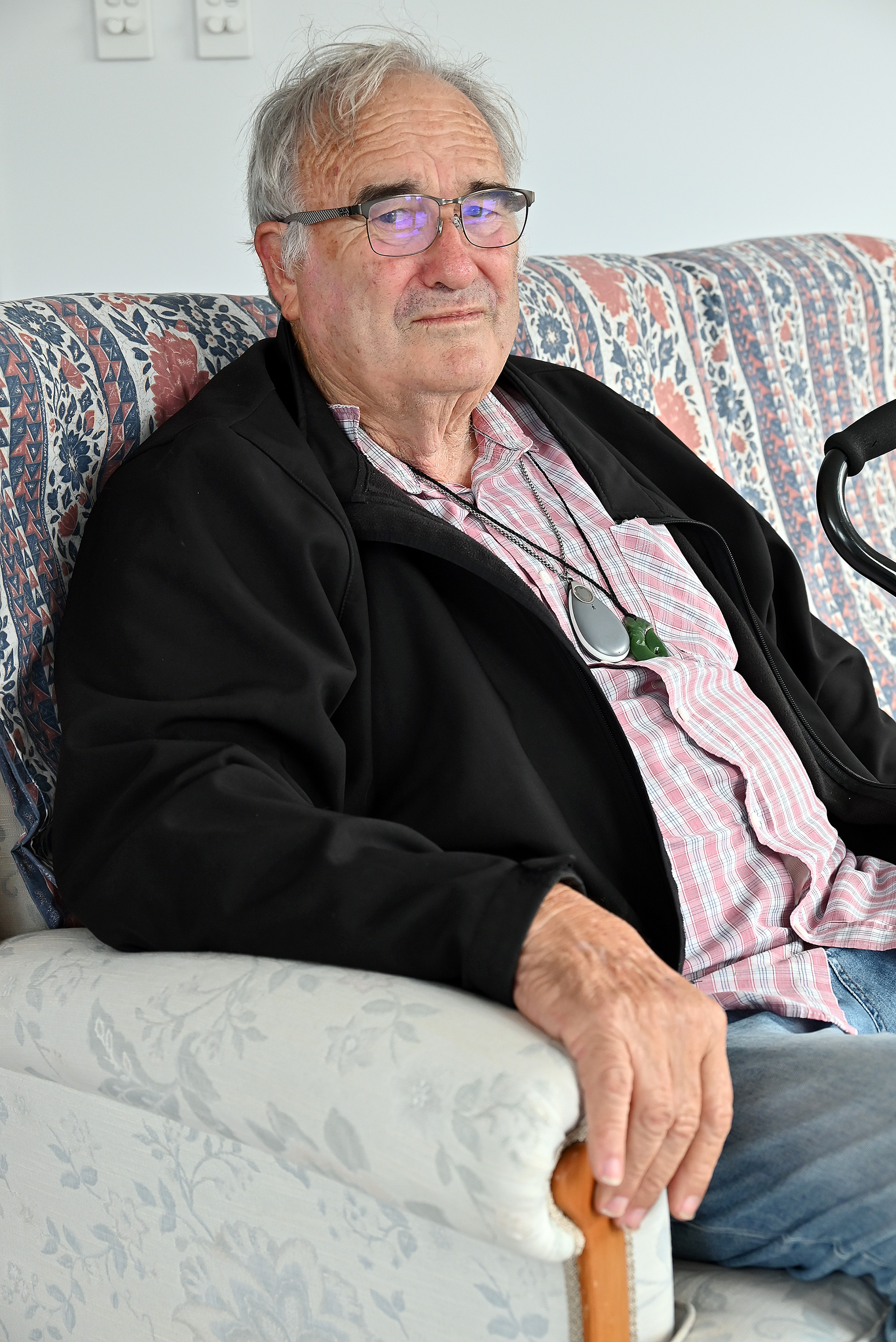Drums of war heard in Ōpōtiki

ADVOCATE: Gavin Nicol holds a QSM for his advocacy work on behalf of returned service personnel. Photo Troy Baker E5280-01
Paul Charman
War clouds seem to be gathering across the world, the NATO Alliance is crumbling, and the effects can be felt close to home.
That’s the view of Ōpōtiki veterans advocate Gavin Nicol, who points out that the United States is applying pressure to the governments of Europe, Australia and New Zealand to increase defence spending.
“Higher defence budgets will be used to increase numbers of soldiers, making military careers more attractive to youngsters from towns lacking many employment options.
“I predict young Māori, especially, will be targeted to join the armed forces over the next few years.
“Rural towns like Ōpōtiki will once more be relied upon to send their young people into the armed forces, which can obviously apply to both peacekeeping and warlike situations.”
Mr Nicol is often on the phone advocating for veterans suffering from post-traumatic stress and other health complaints, though less so since he has been recovering from a fall, which broke his shoulder and eight ribs.
He served in the Victor 5 Co 2 RAR (Anzac Battalion) in Vietnam in 1970, was an electrician and secondary school teacher in civilian life and holds a QSM for his advocacy work.
He is best known for campaigning on behalf of those affected by Agent Orange, a herbicide used in Vietnam from 1961 to 1971, which has done lasting damage to servicemen and their descendants.
“Nobody wants war, but we must face facts.
“Russia is expanding across Europe and China’s influence is expanding across the Pacific; Iran and North Korea are ruled by unstable leaders who constantly threaten war.
“Till now, the West has substantially kept them in check.
“But the paradox is that for the West to pursue peace at any cost in Ukraine, it will only increase the risk of war. That’s what happened in 1939.
“Western countries need strong military alliances as this is the best way to dissuade dictators like [Vladimir] Putin of Russia and Xi [Jinping] of China from invading other countries.”
Why does he think the Western Alliance is in decline?
“The trouble is that on February 28 there was a disastrous meeting in the White House, which many experts say spells the end of the Nato Alliance as we know it.
“Though far from perfect, NATO has been like a policeman keeping the peace since 1949.
“But live on TV and right across the world people saw President [Donald] Trump and vice-president [JD] Vance humiliate the President of Ukraine, Vladimir Zelensky, and take the side of Russia, which has long been an enemy of the West, having missiles aimed at its major cities.”
Mr Nicol said the US leader and his deputy accused the Ukrainian president of not being sufficiently thankful for American support so far and warned him: “You’re either going to make a deal or we’re out, and if we’re out, you’ll fight it out. I don’t think it’s going to be pretty.”
“It was disgraceful,” said Mr Nicol. That was no way to speak to an ally whose people are being bombed by Russia every day and every night. Many commentators America now looks likely to leave NATO.
“Making peace with Russia while they hold 20 percent of Ukraine will only encourage Putin to rebuild his forces over the next few years and eventually try to take more of Eastern Europe.
“So, a wider war involving the likes of Poland, Germany and the Nordic countries seems likely.
“Not only will Trump making friends with Russia embolden Putin, but it could encourage President Xi to think he can invade Taiwan as he will have less fear of America taking any action to stop him.
“That’s why I see the clouds are gathering, and why I feel New Zealand will be pressured to provide a lot more service personnel.”
Mr Nicol said it was one thing to send soldiers marching off to war, but his priority had always been how they are treated when they return home.
“Those of us poisoned by Agent Orange fought for years for this to be recognised but the powers that be found it far easier to deny the damage done.”
However, the lessons had not been learned.
“In the Gulf Wars and now in Ukraine they are using bullets containing depleted uranium (DU), a metal so dense it can cut through the likes of tank amour. The Russians also have DU weapons.
“Soldiers are being exposed to the radio-active material and other hazardous chemicals, but once again there is denial.
“I get a lot of advice from Veterans Affairs USA, which has studied heavily toxic exposure of veterans, though now the Trump administration is going to sack 70,000 people from this organisation.
“We don’t have a good record of looking after our young veterans who have been in many conflicts since Vietnam, including Timor Leste, Afghanistan, Bosnia and the Gulf War, and we have not learned much from the Agent Orange debacle.
“The next generation will probably have to fight just as hard for veterans’ rights as we did. And before we send anyone else overseas, we should look after the mental health of our younger veterans.”